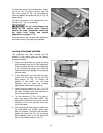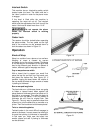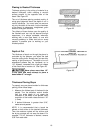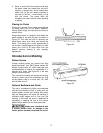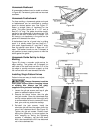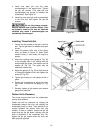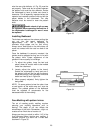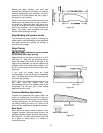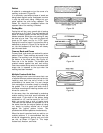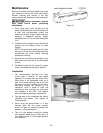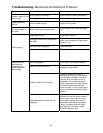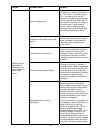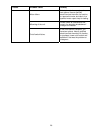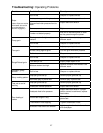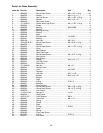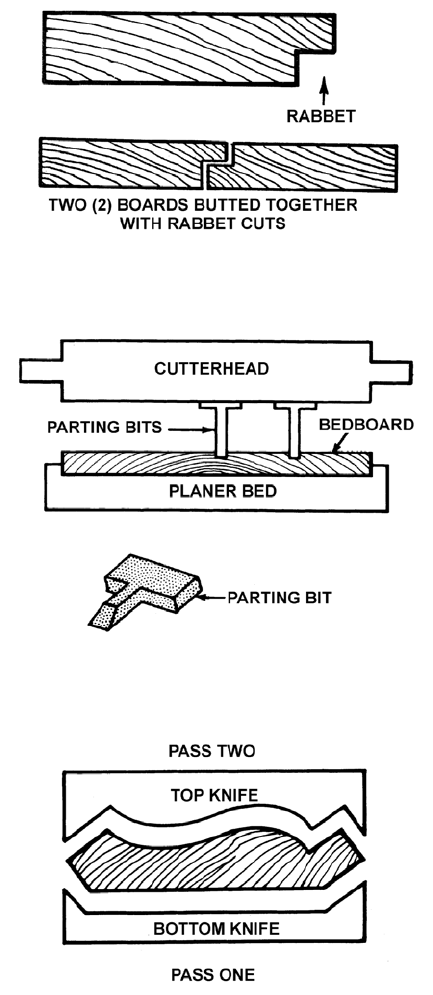
22
Rabbet
A rabbet is a rectangular cut on the corner of a
molding, as shown in Figure 38.
It is commonly used where pieces of wood are
being butted against and/or overlapped, such as
in ship lap and bevel siding. Always set your
guide against the side being rabbeted. The
rabbet cut should be completed before the
exposed side of the molding is finished.
Parting Bits
Parting bits will do a very smooth job of sawing
soft wood up to 3/4” thick. They are installed the
same as custom pattern knives with the planer
blades removed. More than one parting bit may
be used at one time. They can be placed as
close as 3/4” apart, and up to 10-7/8” apart.
Parting bits must be used in conjunction with a
bedboard as shown in Figure 39, as the bits will
cut into the bedboard so that they will cleanly
part the wood stock.
Crowns, Beds and Coves
Crowns, beds, and coves are made with custom
pattern knives. These moldings are made in two
passes. The molding is cut on both the top and
the bottom of the wood piece. See Figure 40.
Pass one is for the bottom. The beveled side
created mounts against the wall and ceiling.
Pass two creates the top which is the decorative
shape that is exposed to the eye when the
molding has been mounted.
Multiple Custom Knife Use
Many operators who have continuous short runs
of several different patterns save set-up time by
installing more than one set of knives in the
cutterhead at the same time. You can change
from one pattern to another simply by changing
the guides. This is a great time saver since it
eliminates removing and installing another set of
knives for a short-run.
At the same time, the cutterhead is producing
usable molding from what would otherwise be
waste stock. If the width of the pattern being
produced is 4-1/2” and the stock is a full 5-1/2”
wide, you would have a strip of waste stock.
This stock can be molded in a separate run or at
the same time that the original pattern is being
run, simply by butting another set of knives
against the original pattern knives. This
produces two different patterns simultaneously.
When the stock is presized and you wish to run
multiple patterns, it is recommended that the
knives be staggered by placing only one knife
per slot, as shown in Figure 41. This helps
reduce load, vibration, and noise.
Figure 38
Figure 39
Figure 40



